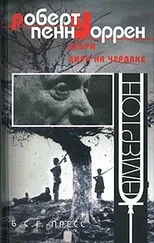Роберт Уоррен - All the king's men
Здесь есть возможность читать онлайн «Роберт Уоррен - All the king's men» весь текст электронной книги совершенно бесплатно (целиком полную версию без сокращений). В некоторых случаях можно слушать аудио, скачать через торрент в формате fb2 и присутствует краткое содержание. Жанр: Современная проза, на английском языке. Описание произведения, (предисловие) а так же отзывы посетителей доступны на портале библиотеки ЛибКат.
- Название:All the king's men
- Автор:
- Жанр:
- Год:неизвестен
- ISBN:нет данных
- Рейтинг книги:4 / 5. Голосов: 1
-
Избранное:Добавить в избранное
- Отзывы:
-
Ваша оценка:
- 80
- 1
- 2
- 3
- 4
- 5
All the king's men: краткое содержание, описание и аннотация
Предлагаем к чтению аннотацию, описание, краткое содержание или предисловие (зависит от того, что написал сам автор книги «All the king's men»). Если вы не нашли необходимую информацию о книге — напишите в комментариях, мы постараемся отыскать её.
All the king's men — читать онлайн бесплатно полную книгу (весь текст) целиком
Ниже представлен текст книги, разбитый по страницам. Система сохранения места последней прочитанной страницы, позволяет с удобством читать онлайн бесплатно книгу «All the king's men», без необходимости каждый раз заново искать на чём Вы остановились. Поставьте закладку, и сможете в любой момент перейти на страницу, на которой закончили чтение.
Интервал:
Закладка:
The impulse to write the journal sprang from the "darkness and trouble," but Cass Mastern apparently had a systematic mind, and so he went back to the beginning, to the log cabin in the red hills of Georgia. It was the older brother, Gilbert, some fifteen years older than Cass, who lifted the family from the log cabin. Gilbert, who had runaway from home when a boy and gone west to Mississippi, was well on the way to being "A cotton snob" by the time he was in his thirties, that is, by 1850. The penniless and no doubt hungry boy walking barefoot onto the black soil of Mississippi was to become, ten or twelve years later, the master sitting the spirited roan stallion (its name was Powhatan–that from the journal) in front of the white veranda. How did Gilbert make his first dollar? Did he cut the throat of a traveler in the canebrake? Did he black boots at an inn? It is not recorded. But he made his fortune, and sat on the white veranda and voted Whig. After the war when the white veranda was a pile of ashes and the fortune was gone, it was not surprising that Gilbert, who had made a fortune with his bare hands, out of the very air, could now, with all his experience and cunning and hardness (the hardness harder now for the four years of riding and short rations and disappointment), snatch another one, much greater than the first. If in later years he ever remembered his brother Cass and took out the last letter, the one dictated in the hospital in Atlanta, he must have mused over it with a tolerant irony. For it said: "Remember me, but without grief. If one of us is lucky, it is I. I shall have rest and I hope in the mercy of the Everlasting and in His blessed election. But you, my dear brother, are condemned to eat bread in bitterness and build on the place where the charred embers and ashes are and to make bricks without straw and to suffer in the ruin and guilt of our dear Land and in the common guilt of man. In the next bed to me there is a young man from Ohio. He is dying. His moans and curses are prayers are not different from any others to be heard in this tabernacle of pain. He marched hither in his guilt as I in mine. And in the guilt of his Land. May a common Salvation lift us both from the dust. And, dear brother, I pray God to give you strength for what is to come." Gilbert must have smiled, looking back, for he had eaten little bread in bitterness. He had had his own kind of strength. By 1870 he was again well off. By 1875 or '76 he was rich. By 1880 he had a fortune, was living in New York, was a name, a thick, burly man, slow of movement, with a head like a block of bare granite. He had lived out of one world into another. Perhaps he was even more at home in the new than in the old. Or perhaps the Gilbert Masterns are always at home in ant world. As the Cass Masterns are never at home in any world.
But to return: Jack Burden came into possession of the papers from the grandson of Gilbert Mastern. When the time came for him to select a subject for his dissertation for his Ph. D., his professor suggested that he edit the journal and letters of Cass Mastern, and write a biographical essay, a social study based on those and other material. So Jack Burden began his first journey into the past.
I seemed easy at first. It was easy to reconstruct the life of the log cabin in the red hills. There were the first letters back from Gilbert after he had begun his rise (Jack Burden managed to get possession of the other Gilbert Mastern papers of the period before the Civil War). There was the known pattern of that life, gradually altered toward comfort as Gilbert's affluence was felt at that distance. Then, in one season, the mother and father died, and Gilbert returned to burst, no doubt, upon Cass and Lavinia as an unbelievable vision, a splendid impostor in black broadcloth, varnished boots, white linen, heavy gold ring. He put Lavinia in a school in Atlanta, bought her trunks of dresses, and kissed her good-bye. ("Could you not have taken me with you, dear Brother Gilbert? I would have been ever so dutiful and affectionate a sister," so she wrote to him in the copybook hand, in brown ink, in a language not her own, a language of schoolroom propriety. "May I not come to you now? Is there no little task which I–" But Gilbert had other plans. When the time came for her to appear in his house she would be ready.) But he took Cass with him, a hobbledehoy now wearing black and mounted on a blooded mare.
At the end of three years Cass was not a hobbledehoy. He had spent three years of monastic rigor at Valhalla, Gilbert's house, under the tuition of a Mr. Lawson and of Gilbert himself. From Gilbert he learned the routine of plantation management. From Mr. Lawson, a tubercular and vague young man from Princeton, New Jersey, he learned some geometry, some Latin, and a great deal of Presbyterian theology. He liked the books, and once Gilbert (so the journal said) stood in the doorway and watched him bent over the table and then said, "At least you may be good for _that__."
But he was good for more than that. When Gilbert gave him a small plantation, he managed it for two years with such astuteness (and such luck, for both season and market conspired in his behalf) that at the end of the time he could repay Gilbert a substantial part of the purchase price. Then he went, or was sent, to Transylvania. It was Gilbert's idea. He came into the house on Cass's plantation one night to find Cass at his books. He walked across the room to the table where the books lay, by which Cass now stood. Gilbert stretched out his arm and tapped the open book with his riding crop. "You might make something out of that," he said. The journal reported that, but it did not report what book it was that Gilbert's riding crop tapped. It is not important what book it was. Or perhaps it is important, for something in our mind, in our imagination, wants to know that fact. We see the red, square, strong hand ("my brother is strong-made and florid") protruding from the white cuff, grasping the crop which in that grasp looks fragile like a twig. We see the flick of the little leather loop on the open page, a flick brisk, not quite contemptuous, but we cannot make out the page.
In any case, it probably was not a book on theology, for it seems doubtful that Gilbert, in such a case, would have used the phrase "make something out of that." It might have been a page of the Latin poets, however, for Gilbert would have discovered that, in small doses, they went well with politics or the law. So Transylvania College it was to be–suggested, it developed, by Gilbert's neighbor and friend, Mr. Davis, Mr. Jefferson Davis, who had once been a student there. Mr. Davis had studied Greek.
At Transylvania, in Lexington, Cass discovered pleasure. "I discovered that there is an education for vice as well as for virtue, and I learned what was to be learned from the gaming table, the bottle, and the racecourse and from the illicit sweetness of the flesh." He had come out of the poverty of the cabin and the monastic regime of Valhalla and the responsibilities of his own little plantation; and he was tall and strong, and, to judge from the photograph, well favored, with the burning dark eyes. It was not wonder that he "discovered pleasure"–or that pleasure discovered him. For, though the journal does not say so, in the events leading up to the "darkness and trouble," Cass seems to have been, in the beginning at least, the pursued rather than the pursuer.
The pursuer is referred to in the journal as "she" and "her." But Jack Burden learned the name. "She" was Annabelle Trice, Mrs. Duncan Trice, and Mr. Duncan Trice was a prosperous young banker of Lexington, Kentucky, who was an intimate of Cass Mastern and apparently one of those who led him into the paths of pleasure. Jack Burden learned the name by going back to the files of the Lexington newspapers for the middle 1850's to locate the story of a death. It was the death of Mr. Duncan Trice. In the newspaper it was reported as an accident. Duncan Trice had shot himself by accident, the newspaper said, while cleaning a pair of pistols. One of the pistols, already cleaned, lay on the couch where he had been sitting, in his library, at the time of the accident. The other, the lethal instrument, had fallen to the floor. Jack Burden had known, from the journal, the nature of the case, and so when he had located the special circumstances, he had learned the identity of "she." Mr. Trice, the newspaper said, was survived by his widow, nee Annabelle Puckett, of Washington, D.C.
Читать дальшеИнтервал:
Закладка:
Похожие книги на «All the king's men»
Представляем Вашему вниманию похожие книги на «All the king's men» списком для выбора. Мы отобрали схожую по названию и смыслу литературу в надежде предоставить читателям больше вариантов отыскать новые, интересные, ещё непрочитанные произведения.
Обсуждение, отзывы о книге «All the king's men» и просто собственные мнения читателей. Оставьте ваши комментарии, напишите, что Вы думаете о произведении, его смысле или главных героях. Укажите что конкретно понравилось, а что нет, и почему Вы так считаете.





![Роберт Уоррен - Рассказы [Компиляция]](/books/419993/robert-uorren-rasskazy-kompilyaciya-thumb.webp)


